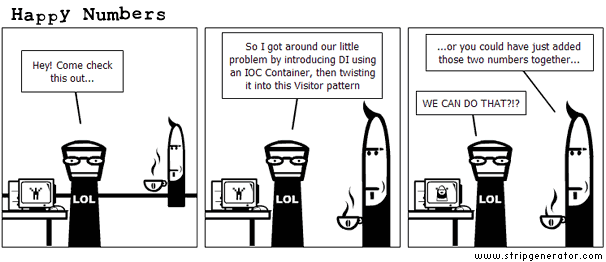Adding People To A Late Project Makes It Later
Filed Under Human Factors, Software Process

Hopefully, we have all come to the conclusion that adding people to a late project makes it later; however, I am surprised how many managers and developers still feel this is a good idea. One of my favorite quotable quotes is:
9 women do not make a baby in 1 month
I have talked before about balanced teams, but having correctly sized balanced teams is also important. If a team grows too large the overhead cost of communication, training, and coordination grows exponentially.
So what questions can we ask ourselves before adding additional resources onto a project?
Is this a temporary resource problem?
Many companies accidentally over staff themselves during situations where they legitimately need more people but on a temporary time frame. Adding permanent staff during these feeding frenzies is dangerous because the possible outcomes are never pretty:
- Projects are overstaffed to “keep people busy”
- Creates feast and famine experiences in work loads
- Always in a hire-then-fire state (creates bad company blood)
What is the communication cost?
If we bring extra resources there are a number of questions we can ask about how we will weigh the cost of communication:
- Will the people physically be in the office or remote?
- Is our spoken language also their primary language?
- What modes of communication are we limited to (email only, documents, phone…)?
Can we realign expectations?
In my eyes, this is how 90% of these temporary problems are solved.
Ask yourself, “Is this deadline really a deadline or just a made up one?” Unless your company has been running commercials announcing the deadline, it would be a good guess that this milestone or deadline is really just a fabricated placeholder in someones timeline. Can that expectation be moved slightly instead of asking for forgiveness when your late project become later.
How much time will we lose before we gain?
As the saying goes, “Two steps forward, one step back”, but in many cases ramp up time for additional resources is the first nail in the coffin for you project. There will always be a cost to new employees, so you can not always use it as an excuse not to bring on new blood – but is at the end of a project when you are the busiest the best time?
Be very leery when bringing people into a late project – it might just be the death of your project.


